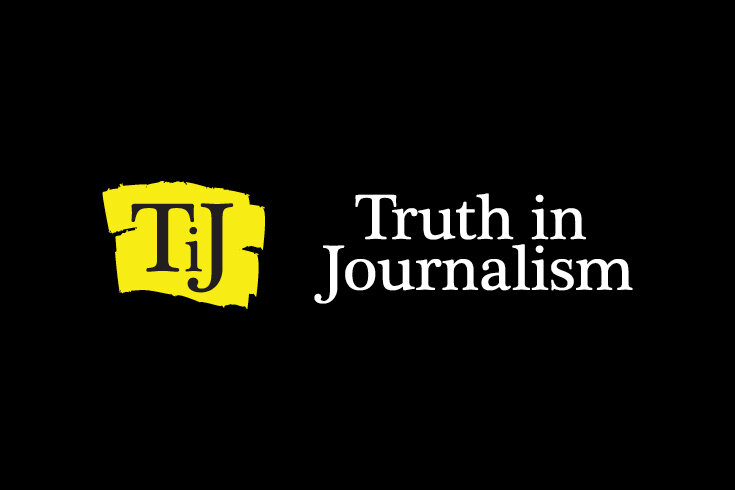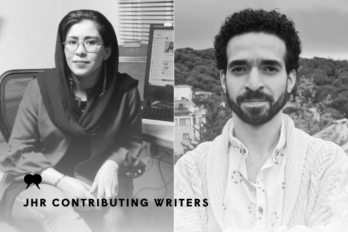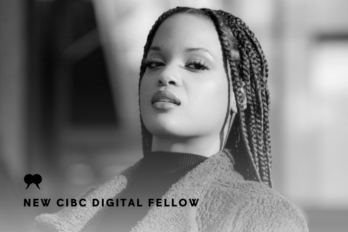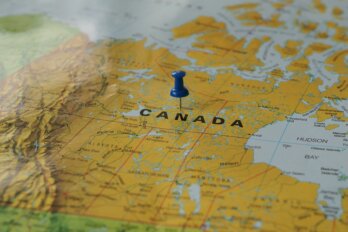Ottawa, Ontario: In an age of fake news and misinformation, fact-checked journalism has never been more vital. A new conference in Ottawa will bring together experts, researchers, journalists, and students to discuss the ethical challenges and nuances involved in editorial fact checking today.
“Truth in Journalism: How Should Journalists Think about Accuracy?” is a three-day hybrid conference taking place from October 19 to October 21, 2022. It will be held in person at Carleton University and will be live-streamed, with keynotes from Pacinthe Mattar, a National Magazine Award–winning writer; Tom Rosenstiel, the co-author of The Elements of Journalism: What Newspeople Should Know and the Public Should Expect; and Niigaanwewidam James Sinclair, an award-winning Anishinaabe (St. Peter’s/Little Peguis) writer, editor, and activist. More details about the event can be found at: thewalrus.ca/truthinjournalism.
The conference is being organized by Allison Baker and Viviane Fairbank, respectively the current and former heads of research at The Walrus, on the occasion of the launch of the Truth in Journalism Fact-Checking Guide—a new, freely available resource created by the pair as part of their 2021 Michener–L. Richard O’Hagan Fellowship for Journalism Education.
“We’ve spent the past year speaking with journalists, academics, and community members about ethical reporting and fact-checking practices. It’s been heartening to meet with such a knowledgeable group of people, all of whom are working in different ways toward the same goal: mitigating harm in a journalism-and-research context,” says Baker. “We’re excited to publish their contributions in the Truth in Journalism Fact-Checking Guide and to continue the discussion at the conference.”
The event will begin on Wednesday, October 19, with an evening keynote on journalism and reconciliation by Niigaanwewidam James Sinclair. Thursday will see the launch of the Truth in Journalism Fact-Checking Guide and a morning keynote speech by Tom Rosenstiel about “truth” in a journalism context, followed by a day of panels with journalists and researchers. Friday will feature a closing keynote by Pacinthe Mattar about objectivity in journalism, the subject she covered in The Walrus.
The panels will include discussions on the editorial fact-checking industry, what striving for accuracy and verification of sources looks like across disciplines, consent in journalism, the potential harms of editorial fact-checking, journalism ethics, and more.
Seating at the venue, the Future of Journalism Institute at the Carleton School of Journalism and Communications, Ottawa, is limited, but the conference will be live-streamed. This is a free event, but registration is mandatory. Attendees can register online at thewalrus.ca/truthinjournalism.
Social Media:
Facebook: /thewalrus
Twitter: @thewalrus
Instagram: @thewalrus
LinkedIn: /the-walrus
TikTok: @thewalrusca
For more information and media requests, please contact:
Monita Mohan, Marketing Manager, The Walrus, at [email protected]
About The Walrus:
The Walrus provokes new thinking and sparks conversation on matters vital to Canadians. As a registered charity, we publish independent, fact-based journalism in The Walrus and at thewalrus.ca; we produce national, ideas-focused events, including our flagship series The Walrus Talks; and we train emerging professionals in publishing and nonprofit management. The Walrus is invested in the idea that a healthy society relies on informed citizens.
About the Conference Organizers and Keynote Speakers:
Allison Baker is the head of research at The Walrus and is based in Tkaronto. Since 2016, she has produced Mi’kmaq Matters, a podcast about the Mi’kmaw people, politics, land, and water of Ktaqmkuk (Newfoundland). She has formerly been the copy editor at Xtra Magazine and has written and fact-checked for The Walrus, Toronto Life, NPR, Canadaland, and Reader’s Digest, among other publications. She also fact-checked Eternity Martis’s bestselling memoir, They Said This Would Be Fun (McClelland & Stewart, 2020). In the fall of 2018, she helped launch The Walrus Fact-Checking, an initiative created in response to the growing awareness of misinformation online. From 2019 to 2021, she was a program officer at Historica Canada, where she worked with academic and community consultants to create multimedia content and educational guides, including the podcast series Residential Schools.
Viviane Fairbank has written, edited, and fact-checked for The Walrus, the Globe and Mail, the Literary Review of Canada, Reader’s Digest, Historica Canada, TVO, Harper’s, and NPR—and she was nominated for Best New Writer at the 2017 National Magazine Awards. From 2017 to 2019, she worked as the associate editor and the head of research at The Walrus. She has spoken on several panels about the importance of editorial fact checking, and she has given guest lectures about fact checking, ethics, and long-form writing to journalism students at Toronto Metropolitan University, Carleton University, the University of King’s College, and the University of Toronto. She is also a PhD student in philosophy.
Pacinthe Mattar is the author of the article “Objectivity Is a Privilege Afforded to White Journalists,” which won a National Magazine Award in 2021. She was selected as a 2021/22 Fellow at the Nieman Foundation for Journalism at Harvard University.
Tom Rosenstiel has been the executive director of the American Press Institute, the founder of the Pew Research Center’s Project for Excellence in Journalism, and the co-author of The Elements of Journalism: What Newspeople Should Know and the Public Should Expect. He is currently the Eleanor Merrill Visiting Professor on the Future of Journalism at the Philip Merrill College of Journalism at the University of Maryland and a senior fellow in the Public Affairs and Media Research Department at NORC at the University of Chicago.
Niigaanwewidam James Sinclair is Anishinaabe (St. Peter’s/Little Peguis) and a professor at the University of Manitoba, where he holds the Faculty of Arts Professorship in Indigenous Knowledge and Aesthetics and is currently Head of the Department of Indigenous Studies. Niigaan is also an award-winning writer, editor and activist who was recently named to the “Power List” by Maclean’s magazine as one of the most influential individuals in Canada. In 2018, he won Canadian columnist of the year at the National Newspaper Awards for his bi-weekly columns in the Winnipeg Free Press and is a featured member of the Friday “Power Panel” on CBC’s Power & Politics. A former secondary school teacher, he won the 2019 Peace Educator of the Year from the Peace and Justice Studies Association based at Georgetown University in Washington, DC.




